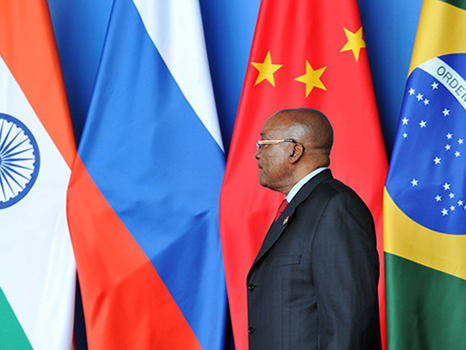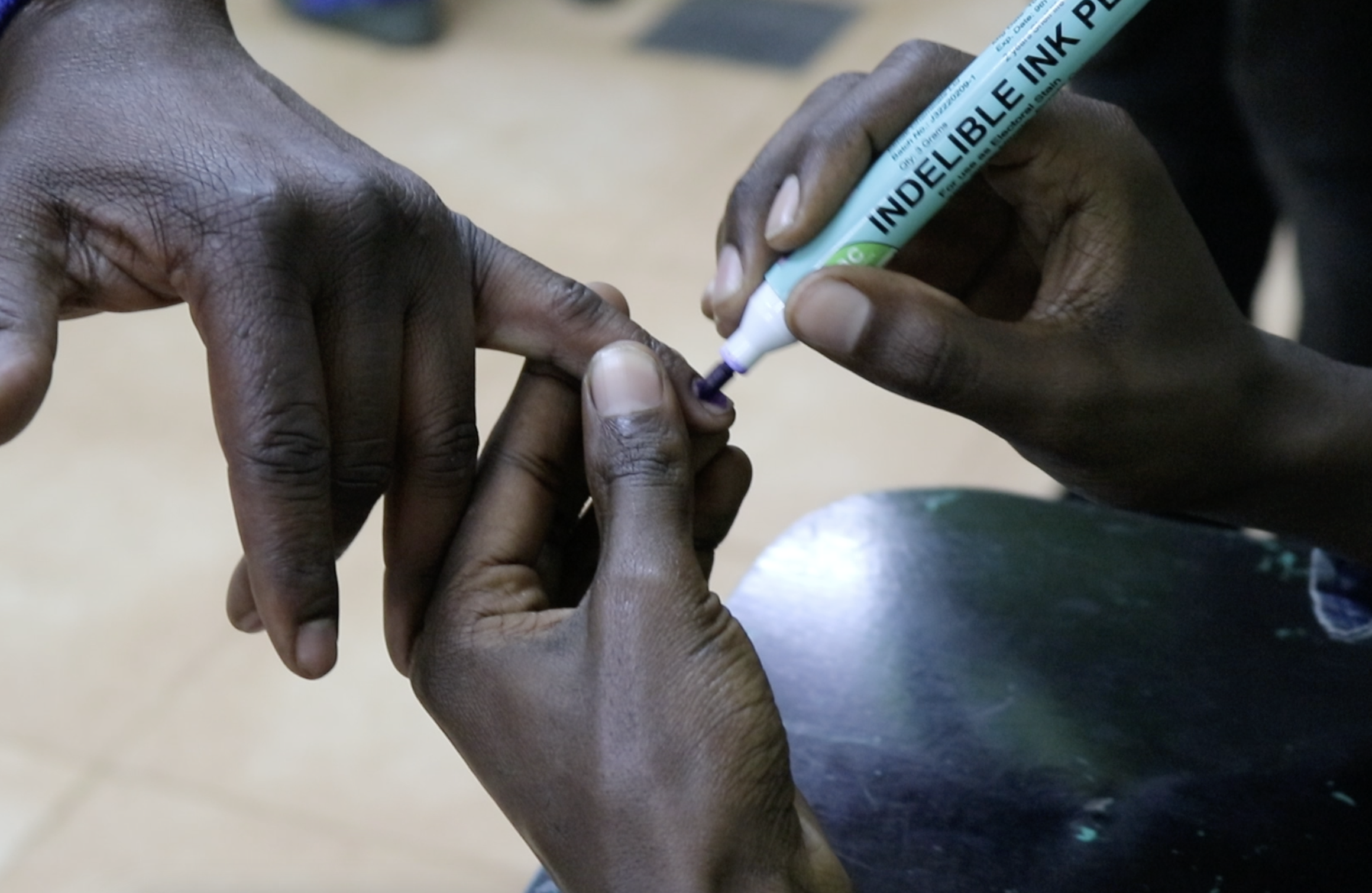News
The World has Changed, but South Africa's Foreign Policy has Failed to Change With it
Pretoria's moral disintegration did not start with its underwhelming response to the Russian invasion of Ukraine, but most publicly with its tortuous defence of the regime in Zimbabwe. And now that the world has obviously changed, South Africa is left horribly exposed, and yet is still banging, tone deaf, on the same drum.

Director, The Brenthurst Foundation

Research Director, The Brenthurst Foundation

The world has changed. South Africa's foreign policy orientation has, in the process, shifted from obtuse irrelevance to dangerously discordant to our values, needs and interests.
This has been a long time in the making.Since 1994, South Africa's foreign policy has been a relatively cost-free means of ensuring the ANC's radical credentials. Cosying up to Cuba and other Cold War allies, banging on about multilateral reform, defending African human rights transgressors in the name of continental solidarity, and polemic on South-South cooperation and regional integration became stock in foreign policy trade.
This wasted opportunity was not cost-free, far from it. Instead of capitalising on the goodwill of the 1994 transition, the ANC descended into the murk of identity politics mixed with Cold War thinking, where the party's interests trumped those of the nation.
Rather than using South Africa's resurgent diplomatic position to build free-trade regimes and boost inward financial flows — since trade and investment, skills, technology and jobs go hand in hand — political capital was squandered on trying to make ideological points and on payback politics.
The net result is that South Africa lost its foreign way. Instead of pressing authoritarians to open up their political systems in its own image, it sought to pursue a rhetorically anti-imperial agenda in a (at least until now) post-imperial age.
And the rhetoric seldom matched the commitment. Instead of building a powerful regional regime which could act as a tool of external assistance and discipline in the manner, for instance, of the European Union, Africa built the superstructure in Addis and the acronyms and little else in the subregions.
And now the world has changed, but South Africa's foreign policy is failing to change with it.
Horribly exposed
Russia's undermining of the post-Cold War order did not start with its invasion of Ukraine, but with its unchallenged cyberattack on Estonia in 2007 and military intervention in Georgia the following year. Pretoria's moral disintegration did not start either with its underwhelming response to the Russian invasion of Ukraine, but most publicly with its tortuous defence of the regime in Zimbabwe.
And now that the world has obviously changed, South Africa is left horribly exposed, and yet is still banging, tone deaf, on the same drum. Three recent markers stand out:
First, last month the Department of International Relations and Cooperation (Dirco) released its latest policy framework, “South Africa's National Interest and its Advancement in a Global Environment”. The document suggests that far from being the neutral arbiter of global conflict, South Africa should align itself with those striving to challenge “the predominance of the Western powers and the liberal international economic order”.
Second, on her return last month from an international security conference in Moscow (yes, really), Defence Minister Thandi Modise defended her attendance in Parliament, stating that South Africa and Russia enjoyed cordial relations and that “the acceptance of the invitation was seen as a crucial step to articulate South Africa's position on the need for the maintenance of international peace and security”.
When questioned about the reasons behind the Russian invasion, Modise answered: “I do know that, whatever it is, it must be taken right back to Nato [the North Atlantic Treaty Organization] and the inability of the United Nations to intervene when it should have intervened.”
“That is why,” she added, “we have been calling for a relook at the power relations in the UN. The big brother, little sister syndrome there… we must also be looking at the power that is vested in the countries that make up the UN Security Council. When the UN was formed, we thought that all members would be equal.”
Overlooking that the UN Security Council was established at the outset, South Africa does not understand what exact reforms it wants because it seemingly understands the interests of the great powers better than all others. From its voting pattern in the UN — seldom with the US and nearly always with China — it does not apparently understand the principles and nuances of multilateral politics. It also seems uncertain on what reforms it can agree on outside of broad brushstrokes of “reform”.
And it clearly does not understand what it takes to make regional bodies work to common advantage in setting conditions of membership and standards of behaviour.
The evidence is everywhere.
The day before Modise's parliamentary answers, on 30 August 2022, Russia's minister of foreign affairs, Sergei Lavrov, and South Africa's International Relations and Cooperation Minister Naledi Pandor spoke. According to the Russian press release on the substance of the telephone conversation, “the interlocutors exchanged views on the main issues of bilateral relations and current problems on the international agenda, including the situation in Ukraine”.
It notes that “the interest of Moscow and Pretoria in the further progressive development of bilateral political dialogue, the increase of mutually beneficial trade and economic and other cooperation, and the coordination of positions in BRICS, the Group of Twenty, the UN and other international platforms are confirmed”.
Yet it is precisely such balance that the ANC has not sought in its foreign relations.
Phillip Dexter, a co-founder the Pan-African Institute for Socialism, has been banging on in various media about how South Africa's media have been captured by a coalition of right-wing and neoliberal forces, with key online publications such as News24, amaBhungane and Daily Maverick all under this conspiratorial control, with funding, he alleges, from the US State Department, among others. This would be of zero interest save to confirm his views on the great Satan and its agents, and that he is also the chairman of Armscor.
And all this in the name of neutrality.

A brutish new order
Tom Tugendhat, the UK House of Commons foreign policy committee chair (and recently appointed defence secretary), wrote this past week in Foreign Affairs that “the global order has been upended, and the events of the past year show that the world has moved into a new era of brutish great power politics. Western democracies now inhabit a world in which multilateral institutions are no longer able to provide the stability or security they once promised.” For the UK, he writes, a globally connected nation, “the new instability presents an acute threat”.
What should South Africa, a similarly globally connected nation, be doing to safeguard its prosperity and interests in such a new, radically changing world?
First, it should focus on building alliances and systems that strengthen domestic institutions, at home and in Africa. This requires recognising and acting on the need to fortify democracy and the rule of law — and to speak out against authoritarianism; and to cooperate most deeply with those which share our values, the basis fundamentally of trust and security.
It means using our diplomacy to build economic resilience and thus security through growth and jobs. As Tugendhat notes, “democracy, freedom, and global resilience” are tied together. The ability of democracies, he argues, “to adapt, rebuild, pivot and rebalance” is key to understanding why they are stronger than autocracies. And yet he notes that “the core values of open societies are at stake: the right to choose and change leaders and direction, to criticise and correct, to experiment and succeed, and, yes, to fail. That's good for every nation, however it is governed.”
South Africa has to become an advocate for our cause of development and justice, and not just a spectator or, worse still, a cheerleader for those seeking to subvert this system. It can do so by pursuing trade partnerships, and by speaking out on authoritarianism. By tying ourselves to Russia we not only threaten this system, but in the process ensure we can only sink further into the developmental mire.
Second, it needs to construct a fit-for-purpose trade regime and diplomatic network through which to pursue its national development goals.
Third, South Africa should seek specific goals for multilateral reform, not least around climate change. And we should seek to give meaning to regional concepts and ambitions through our actions, for example by expediting trade flows at borders and opening up regional logistics to private investment.
In today's challenging times, foreign policy should be geared less to faux goals about changing the world according to ideological memes, than reshaping national fortunes according to the reality of growth, investment and jobs.
To do otherwise is to betray the government's critical constituency: its citizens.
This article originally appeared on the Daily Maverick
Photo: GovernmentZA

